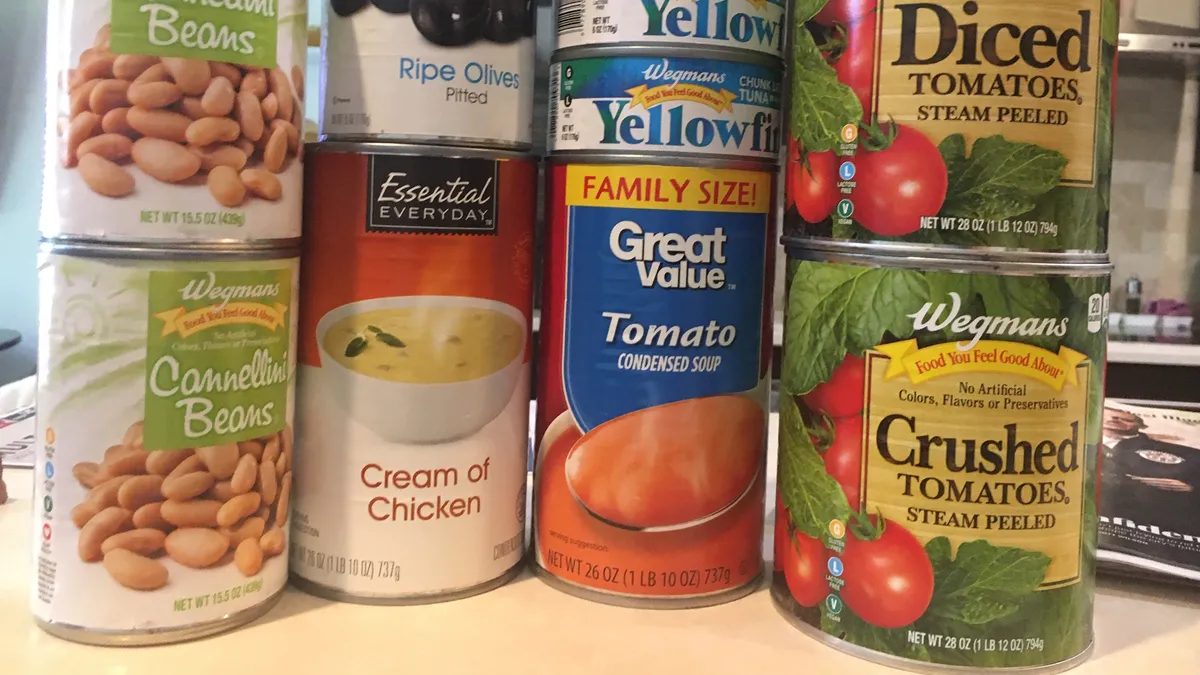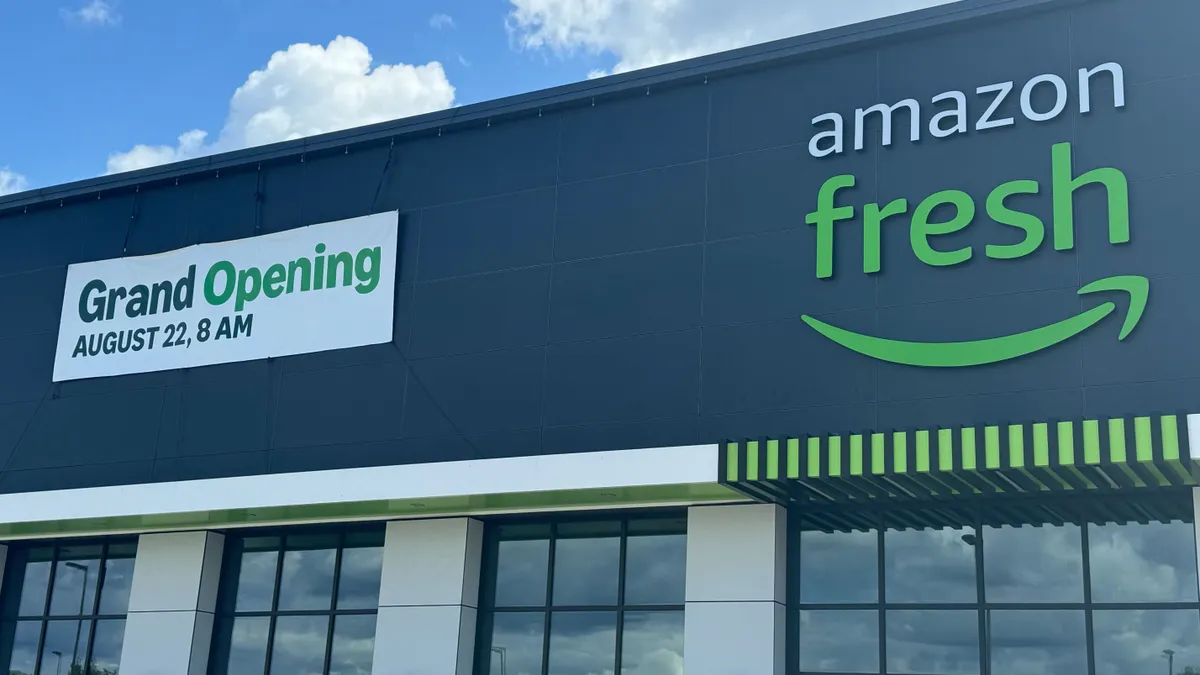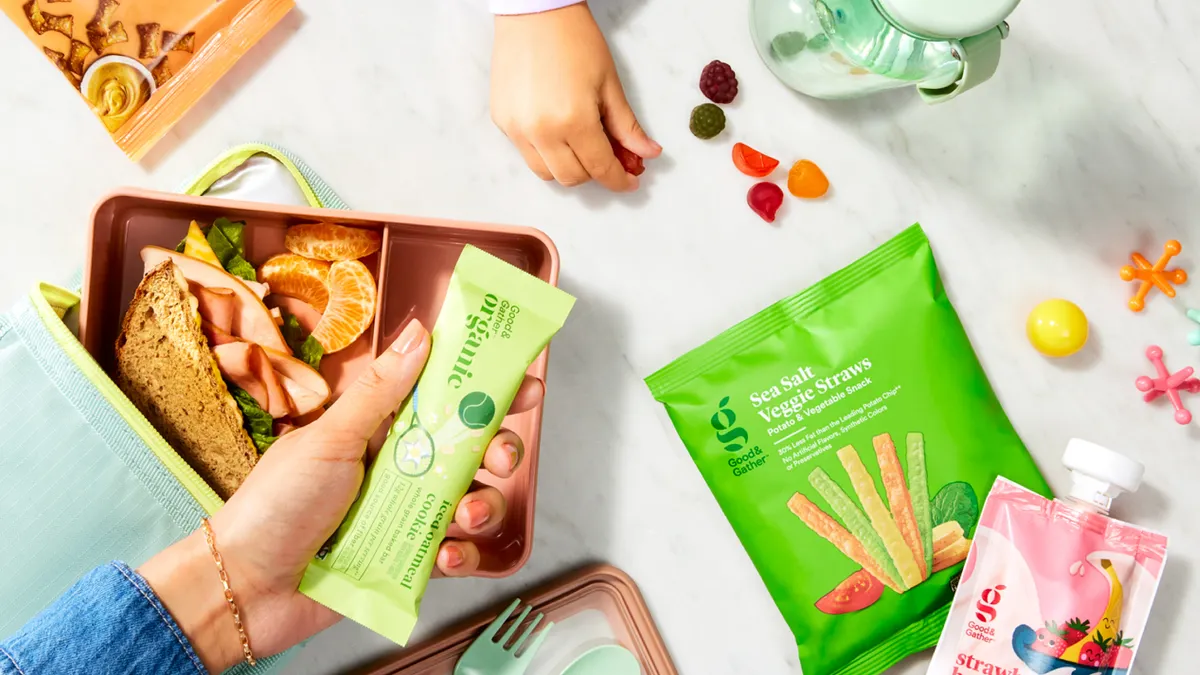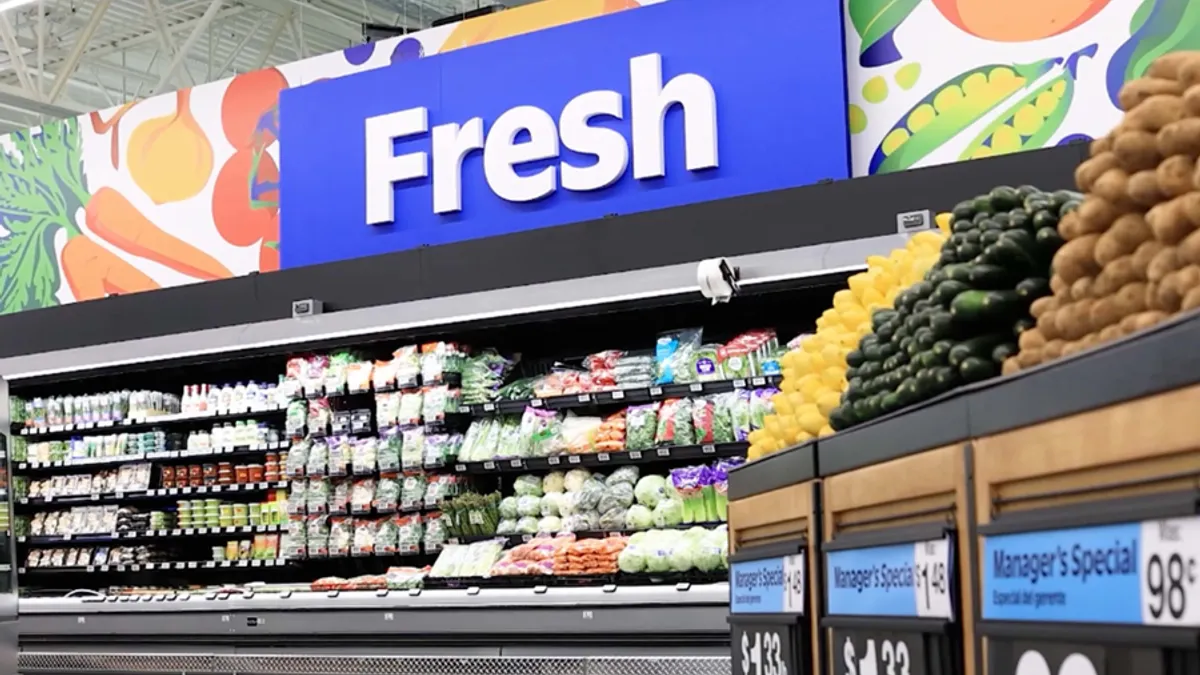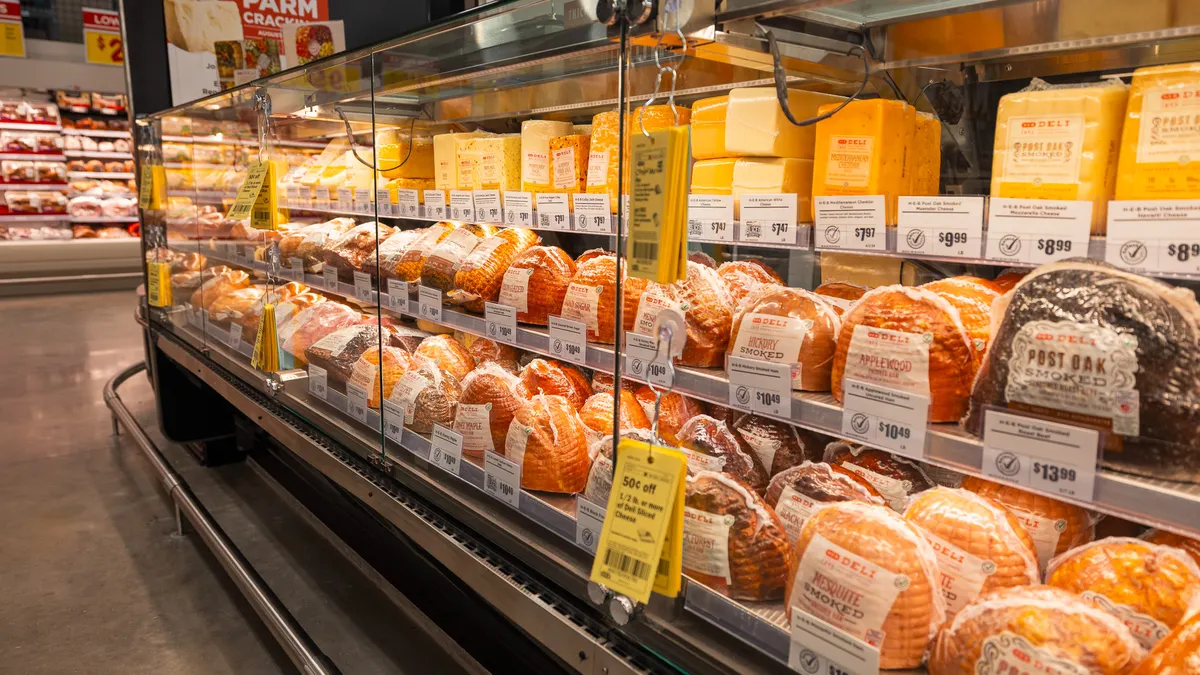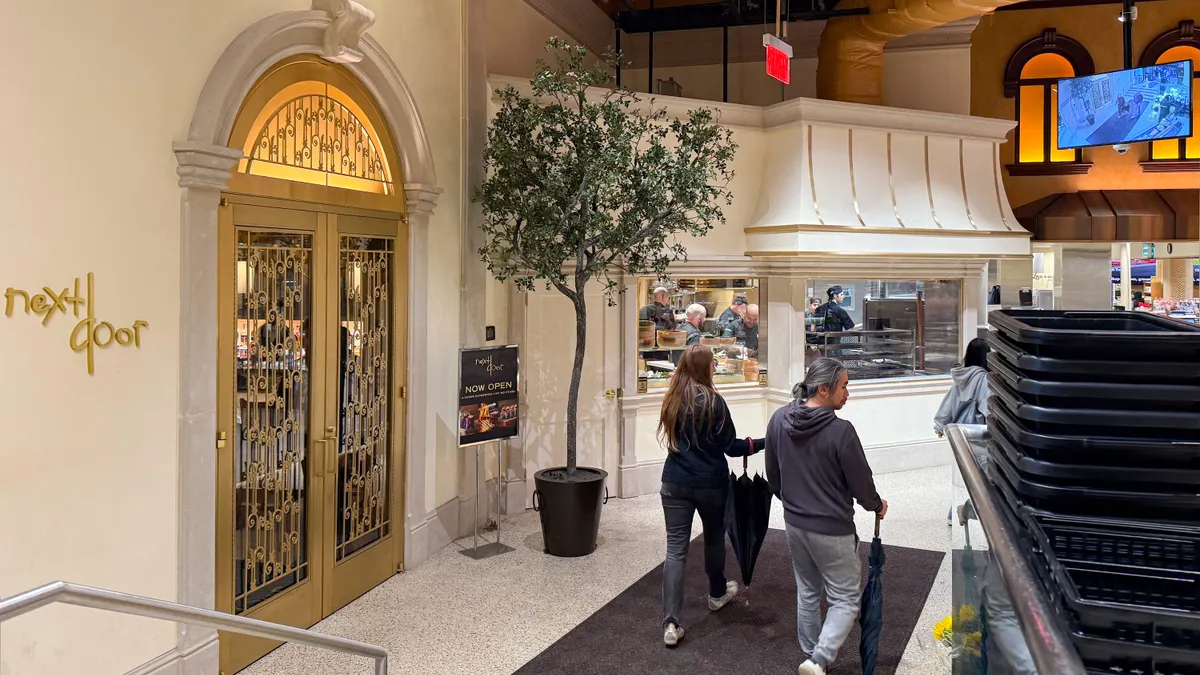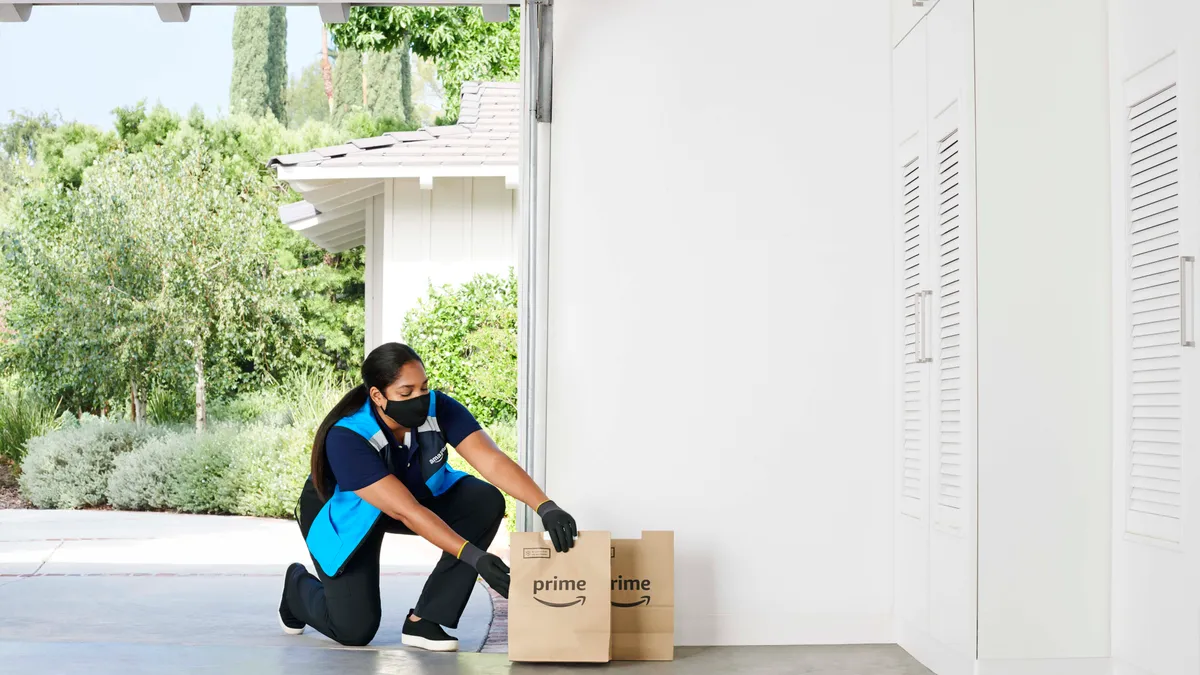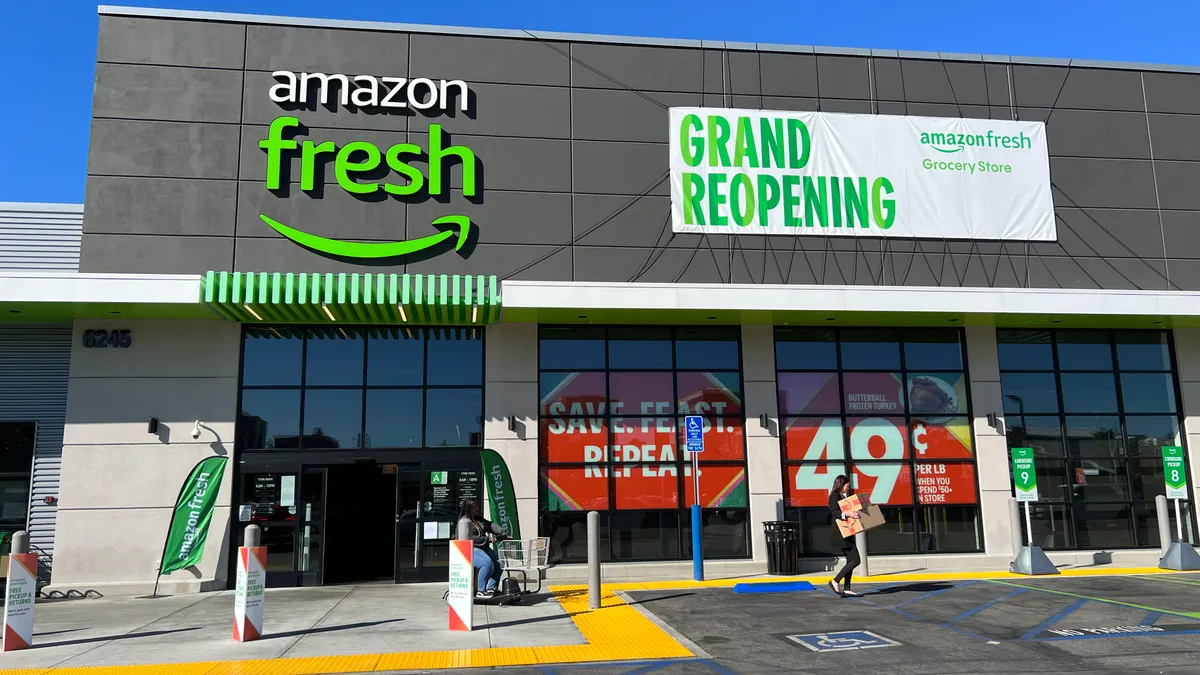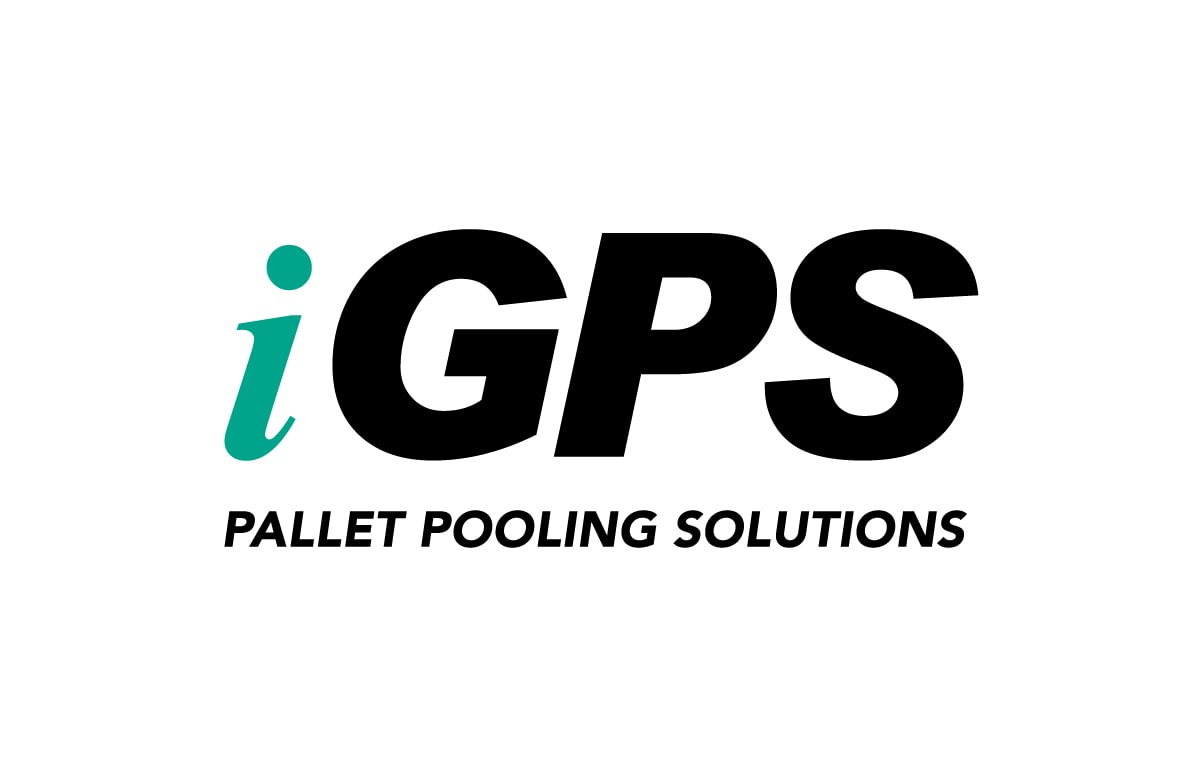Private label offerings of pasta, sauces, granola and other foods are surging with millions of Americans out of work due to the pandemic, but the specter of a prolonged recession could make the $90 billion-plus category even more attractive to consumers.
"Consumers feel the need to be careful with their money because that is a lesson that everybody has learned from" the Great Recession a decade ago, Krishnakumar Davey, president of strategic analytics at IRI, told sister publication Food Dive. "This means private label is going to do well. It's a nice tailwind for private label under the current environment."
Even before the shutdown of restaurants, sporting events and social gatherings from the coronavirus prompted people to spend more time cooking at home, private label was forecast to have a strong 2020 with sales growth expected to outpace that of national brands for the fourth straight year, according to IRI. Once dismissed by consumers as inferior, private label has now become a standard go-to item for many people when they shop — generating billions in additional revenue for the companies that manufacture these products.
In large format stores such as grocery, Walmart, Target and club outlets, IRI estimated private label sales of food and beverages are forecast to increase between $10 billion and $12 billion this year — up from a $2.5 billion increase a year ago — to $93 billion to $95 billion.
Private label's market share of food and beverage consumption in these channels is expected to grow about half a percentage point to 19.2% after jumping 0.4% in 2019. If this trajectory continues, the segment could grow sales another $10 billion next year, Davey said.
All eyes on Washington, D.C.
TreeHouse Foods, the nation's largest manufacturer of private label products, said sales accelerated in April as unemployment surged to levels not seen since the Great Depression. U.S. employment has shed about 20 million jobs, or 13%, since February, the month before the pandemic prompted states to shutter parts of their economies, according to The Wall Street Journal.
To meet growing demand, TreeHouse, especially during the initial stock-up run by consumers in late March, worked with retailers to identify the most popular SKUs to help streamline operations and increase their output. It expanded production at some plants from five to seven days, and added extra shifts when needed, Amit Philip, TreeHouse Foods' chief strategy officer, told Food Dive.
"Consumers feel the need to be careful with their money because that is a lesson that everybody has learned from" the Great Recession a decade ago. "This means private label is going to do well. It's a nice tailwind for private label under the current environment."

Krishnakumar Davey
President of strategic analytics, IRI
Philip said the pace of growth in private label during the pandemic has actually been tamped down a bit by a stimulus package signed into law March 31 that increased unemployment assistance in every state by $600 a week for up to four months.
If Congress and the White House decide not to extend that subsidy this summer — payments are scheduled to end after July 31 — shoppers would have less money in their pockets to spend. This would make private label more enticing for value-hunting consumers. While private label's market share would increase by about half a point in the back half of 2020 with the benefits in place, if it's not renewed, its share increase could double or triple over that same period, Philip said.
"If that subsidy goes away, then people are really going to be hurting, and unfortunately what that means is there is a lot more movement into finding value, and that's what private label offers," Philip said.
During the pandemic, private brand sales have jumped 34%, outpacing national brands, according to a report from Daymon, a sign they are "resonating with consumers as they look for alternative solutions." Similar data from Nielsen showed during the 14-week period ending June 6 that private label sales surged 23% while brand names jumped slightly less at 21%.
TreeHouse said meal-prep items such as pasta, broth, red sauces and macaroni and cheese have posted the largest increases in recent months. Pasta alone was up roughly 70% during the peak of the outbreak. Cookies and crackers also have surged but their sales increases have been less robust. One occasion "that has struggled a bit" is bars, with consumers spending less time commuting or grabbing a snack at places such as work or the gym, Philip noted.
At 8th Avenue Food & Provisions, jointly owned by Post Holdings and private equity group Thomas H. Lee Partners, Scott McNair, president and CEO, told Food Dive in an email the company saw demand for its pasta, nut butters, granola and other products "spike as consumers gravitated toward items that were easy to prepare."
Investing in private label
Since the last recession more than a decade ago, retailers such as Kroger, Aldi, Costco, Wegmans, Publix, Trader Joe's and even Dollar General have invested heavily in the space through better package designs, improved quality and multi-tiered offerings.
"While many grocers offer private label products, [our private label offerings are] a real differentiator for Kroger," Rodney McMullen, Kroger's CEO, told analysts during the company's earnings report last December. "Our customers tell us through blind taste tests that Our Brands' quality is better than not only the competitors' private label products but also many leading national brands as well."
TreeHouse's Philip said the company is being asked by "really powerful retail brands" for private label products with attributes such as better quality, organic or healthier. It's no longer enough for them to offer a national brand or slightly less than a national-brand equivalent.
For supermarkets, they are a valuable way to build consumer loyalty and increase the volume of shopper trips to their stores. More than half of shoppers reported they picked a store specifically for its private brand offerings while 89% said they trust them as much as traditional offerings, Daymon said. At the same time, more than 80% consider private label to be a better value for their money.
Private brands in the U.S. generated $153 billion in 2018, including edible and non-edible products across multiple retail outlets, according to a report last year from The Food Marketing Institute and IRI. The firms found the products are reaching a larger audience across demographics and generations. Kroger, the largest supermarket chain in the U.S., gets about 20% of its $122 billion in annual sales from its own private brands, while at Albertsons, the segment now makes up more than a quarter of its total revenue.
"There are a bunch of distractions going on for the retailers right now but ... once the retailers get organized, I’m sure they will push private labels to the economically challenged shoppers because they will be making less and spending less so they will try to get a higher share of the wallet" through their own brands, Davey said.
Retailers who have invested in their private label brands and have managed to build a strong reputation among consumers "are likely to grow" the most under the current climate, he said.
Lessons from the Great Recession
Early on during the pandemic, shoppers were stockpiling at home, leading to a shortage of several items on shelves. If their favorite brand name was out of stock or they wanted to fill their pantry, many consumers turned to private label to load up their carts. This could create a long-term swell to the private label category if shoppers are won over by quality and price, turning them into permanent buyers.
A survey of consumers by Magid in early April and May found 68% said they would likely continue buying private label products after the coronavirus threat subsides.
"The days of private label being a substitute quality choice are long gone," McNair said.
The Great Recession offers a study in how private label could benefit again this time around under another economic downturn.
“Certainly that recessionary period was a really accelerated time of growth for private label and literally did come as a shock, I think, for a lot of the branded companies," Neil Saunders, managing director with Global Data, told Food Dive. "There had been a little bit of growth on private label before that, but it is really when a lot of consumers, especially middle Americans, did turn more heavily to private label to try to save money.”
For private label, the economic downturn from 2008 to 2010 marked a coming-out of sorts for the category as it not only managed to grow market share and sales but used it as a springboard for future expansion that has been ongoing ever since.
"Even if the economy rebounds fully, we believe there will be new work norms that will enable more people to work from home — and there will be increased household consumption of the private brands they grew to love during the stay-at-home time."
Scott McNair
President and CEO, 8th Avenue Food & Provisions
In recessions in the early 1990s and 2000s following the dot.com collapse and 9/11, private label managed to grab market share only to give much of it back after the economy improved, TreeHouse's Philip said. But the Great Recession saw millennials starting to enter the workforce, and today, they and their Gen Z cohorts are more value oriented, brand agnostic and more willing to try new things. Private label is among the biggest beneficiaries.
"Another recession would indicate similar purchase behavior," McNair said. "However, even if the economy rebounds fully, we believe there will be new work norms that will enable more people to work from home — and there will be increased household consumption of the private brands they grew to love during the stay-at-home time."
According to IRI, the then-nascent private label category added $8 billion in sales between 2008 and 2010, with products such as meat, salad, cheese and sugar that already had a strong presence in the space posting the biggest growth. Nearly $3 billion in the new revenue came from private label grabbing market share from brand-name goods.
The "trade down" to private label during the Great Recession was mainly centered on value, with consumers looking for the lowest price point they could find, Saunders said. Today, with private label firmly entrenched, another recession could push shoppers to try new categories within the space.
'Continue to prosper'
At Treehouse, executives are closely monitoring consumer eating habits as states gradually reopen businesses to assess how home eating habits and grocery shopping patterns change. They're watching areas where conditions have improved to determine if they should bring back SKUs so consumers have the product choices they are used to.
Even as things improve across the country, TreeHouse, after investing the last few years to improve its data analytics capabilities, is watching where cases are spiking or falling on a county-by-county effort to prepare for future demand and know which products might be popular with consumers.
For 8th Avenue Food & Provisions and TreeHouse, the companies are optimistic the long-term outlook for private label remains bright even when the economy improves and millions of Americans are back to work. Similar to previous economic downturns, the hope within the industry is that more customers who tried private label brands this time around will become long-term buyers.
"Through everything that has gone on there have been a number of people that have been exposed to private brands, or have been forced to switch brands because their brand wasn't available or they were looking for better value," said Philip. "We've had a lot of trial [with people] and so private brands will just continue to prosper over the next few years."



